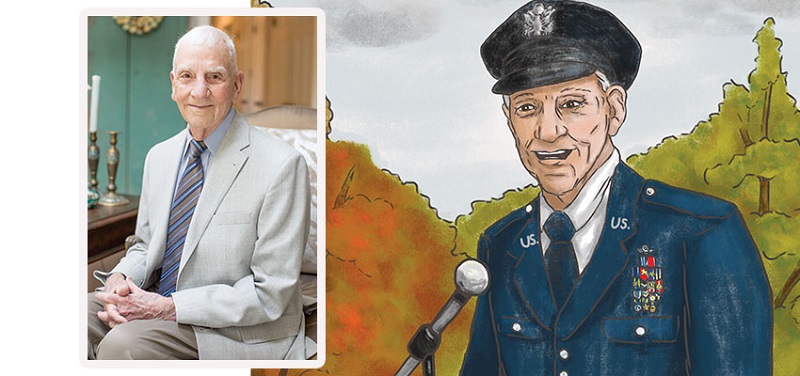Four Tips for Male Caregivers During the Holidays
Sign up for a six month free
trial of The Stand Magazine!
My struggling father turned to me for help after mother’s health faltered in the past few months. He asked “what happens if…” questions, and it was an odd moment giving counsel to the man who guided me for a lifetime. Yet, he is one of the millions of men struggling with caregiving challenges.
He knew I’ve cared for my wife through three-decades of medical nightmares including 80 surgeries and multiple amputations. He knew that I know the hard road of caregiving as a man.
Caregiving’s steep learning curve combined with men’s reluctance to ask for help and their tendency to view challenges as conflicts to be bested creates more problems than it should. “Fight,” “beat,” and “victory” seem hardwired into our brains. When caring for an impaired loved one, those impulses kick into high gear—driving us to act. But caregiving requires unconventional leadership—through stewardship and serving.
The need for this skill is rising. Since 2007, the number of male caregivers shows a marked increase. While actual numbers of caregivers vary from study to study, women represented approximately 65 percent of family caregivers. In a decade, men serving in this capacity rose from 35 percent to more than 40 percent.
But it is a skill which can be strengthened.
In The Mask of Zorro, the young Alejandro impulsively desired to rush into battle. Don Diego de la Vega bluntly tells him, “Oh yes my friend, you would have fought very bravely, and died very quickly.”
The holiday season can be particularly tough on caregivers. We rush around frantically, working to make things special for others, yet often feel ourselves dying quickly. Over the years, I’ve learned four lessons that, while universally effective, specifically assist male caregivers. These tips help in redirecting those valuable male impulses —during what is often an already stressful time of year.
- Fight what’s closest.
Addressing my father’s question about “what happens if…,” I shared my martial arts instructor’s wisdom, “If a threat is five yards away, and another is 100 yards away …fight what’s closest.”
Nodding, my father asked, “What happens if the first one whoops you?”
Even he had to smile when I said, “Well, then you don’t have to worry about the second one.”
With ample arm’s length challenges, the horizon’s battles can wait. Directing energies towards what’s “touchable,” allows us to build successes. Not to be confused with perfection, those successes involve accomplishing the closest tasks to the best of our abilities. The challenge is to identify the immediate need, meet it, and then move to the next. While we often seem like high-functioning multitaskers, prioritizing, not juggling, is where we discover real victories.
- Respond rather than anticipate.
Once while sparring, I focused on my opponent’s shoulder—anticipating the punch. Instead, he threw a roundhouse kick into my chest. While the kick hurt, the embarrassment of such a rookie mistake in front of fellow black-belts felt worse. As caregivers, we easily fixate and steel ourselves for a perceived outcome. In doing so, we’re often blindsided. Waiting and responding to what we’re given, allows us to better handle what’s thrown at us.
- Discretionary Valor.
Sometimes, knowing when not to act or speak is an act of wisdom. We often find our words and actions rarely make a dent in caregiving’s relentless crises. Yet we hurl both at trying to fix the unfixable. Rather than trying to solve or feel better about it, a worthier goal is to BE better. Much like whitewater rafting, paddling upstream in rapids is futile. We must instead navigate safely through them. When we weaponize our strength and determination, we try to force solutions where none are possible. Our challenge as caregiving men is to redirect our drives from conquering the external to mastering the internal.
- The Simple Things.
A friend once told me, “In the army, sometimes the leader is the guy who remembers where the jeep is parked.” Caregiving disorients the best of caregivers. Keeping things simple helps us make our way to safety when things go awry.
When anxiety was great within me,
your consolation brought me joy.
Psalm 94:19
Caregiving consistently reminds us of our lack of control over often-heartbreaking events. Yet, control of our own actions, words and thoughts remain exclusively within our power. Making things special for others during the holidays only amplifies our “normal” caregiving stress and can easily (and futilely) cause us to try to muscle our way to victory. Implementing these four tips helps brings the temperature down during the season of joy and happiness. In doing so, we may even surprise ourselves by allowing a little joy and happiness in our hearts.
Peter Rosenberger is a thirty-year caregiver for his wife Gracie, who lives with severe physical disabilities. He is the author of Hope for the Caregiver and his radio show for family caregivers broadcasts weekly on American Family Radio on Saturdays at 7 AM. @hope4caregiver

Sign up for a free six-month trial of
The Stand Magazine!
Sign up for free to receive notable blogs delivered to your email weekly.


















